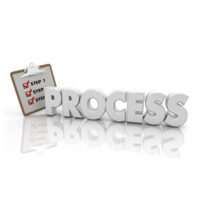A Brief Breakdown Of The Divorce Process In Florida

Divorce can be emotionally grueling, but it is first and foremost a legal process. Florida, like each state, has its own laws and procedures in place when it comes to how courts handle divorces. Having a good understanding of this process can help couples more easily navigate the legal system and make informed decisions about their post-divorce futures. Read on for a basic breakdown of the steps involved in the Florida divorce process.
Filing the Petition
The first step in any divorce is filing the petition for dissolution of the marriage. This petition contains a wide range of information, including the names and addresses of the parties and the reason for the divorce. The parties will also need to submit some supporting documentation, including a financial affidavit listing their assets and debts. If a couple shares children, then they will also need to submit a proposed parenting plan that splits up time-sharing and parental responsibility between the parents.
Serving the Petition
Once the divorce petition has been filed, a copy will need to be served to the other party, or the respondent. This can be achieved through the mail or by having a process server actually deliver the petition in person. Generally, these petitions must be served on the other party within 120 days of the filing or the divorce case will be dismissed.
Filing a Response
Once the respondent has received the copy of the petitioner’s official request for divorce, he or she will have 20 days to file a response. At this point, they will have the opportunity to refute any claims made by the petitioner and to propose their own terms for the divorce.
Discovery
Once the response has officially been filed, the parties can begin the discovery process, which requires the exchanging of a wide range of information and documents related to the marriage. A variety of financial documents will need to be obtained and handed over at this point, including property deeds, bank account information, tax returns, and income-related documentation. Records of debts and any other legal proceedings will also need to be exchanged.
Mediation
Before a divorce case goes to trial, judges will typically require that the parties attempt mediation, where a neutral third party will help them try to reach an out-of-court agreement on divorce-related issues, like property division, alimony, and child custody. Mediation is much less stressful than going to court, is less expensive, and leaves important determinations in the hands of the parties involved rather than a judge.
Trial
If a couple is unable to reach an agreement in mediation, then they’ll need to resolve their issues by taking them to trial, where a judge will hear evidence, question witnesses, and allow the parties to make their arguments before issuing a decision. This final judgment will outline the terms of the divorce, including the allocation of marital assets, alimony, and child custody arrangements. These judgments are legally binding, so the parties must comply with them or risk serious sanctions.
Call Today for Legal Help
To learn more about the divorce process in Florida, please call experienced Florida divorce lawyer Sandra Bonfiglio, P.A. Don’t hesitate to call our office at 954-945-7591 to schedule an appointment with us today.
Sources:
flcourts.gov/Resources-Services/Office-of-Family-Courts/Family-Court-in-Florida/Family-Law-Forms/Petition-for-Dissolution-of-Marriage-12.901-Forms-A-B3
floridabar.org/public/consumer/pamphlet010/







